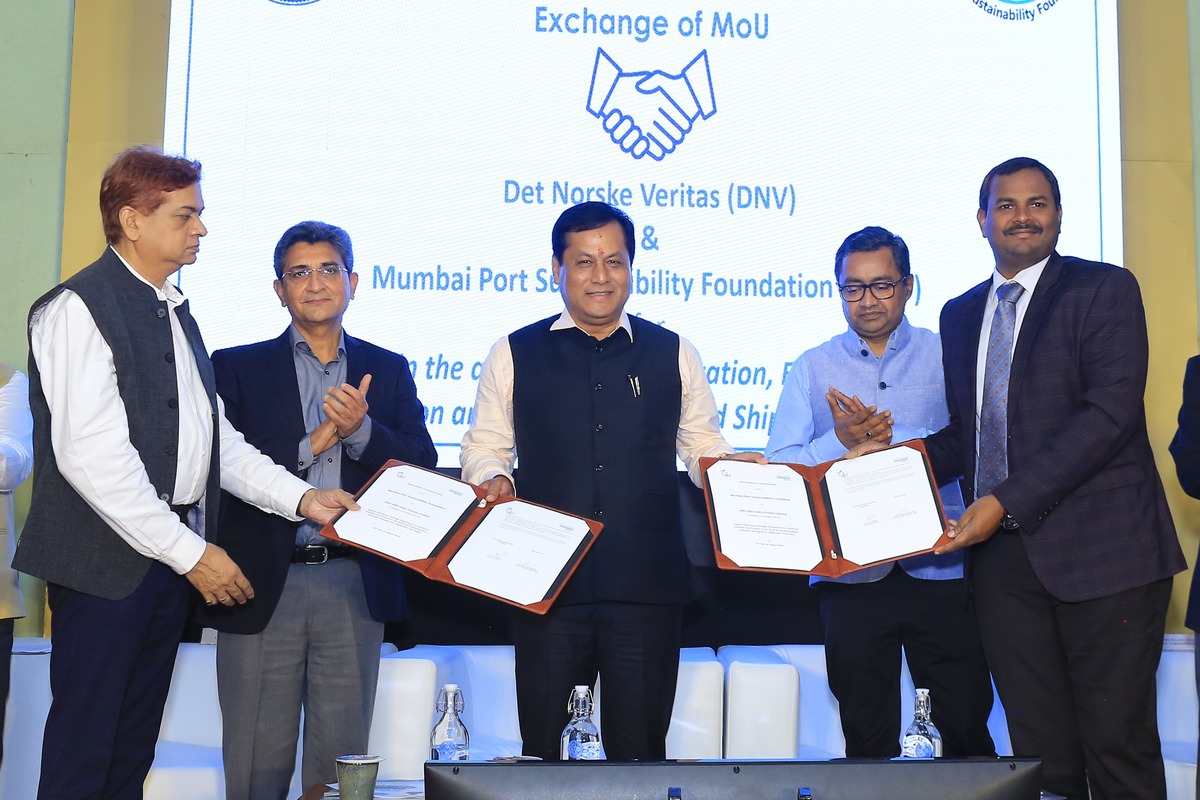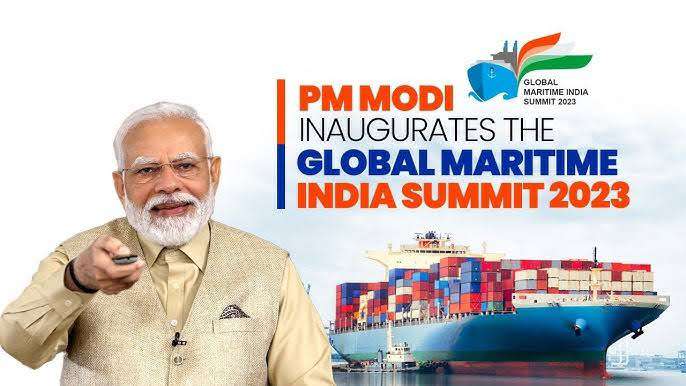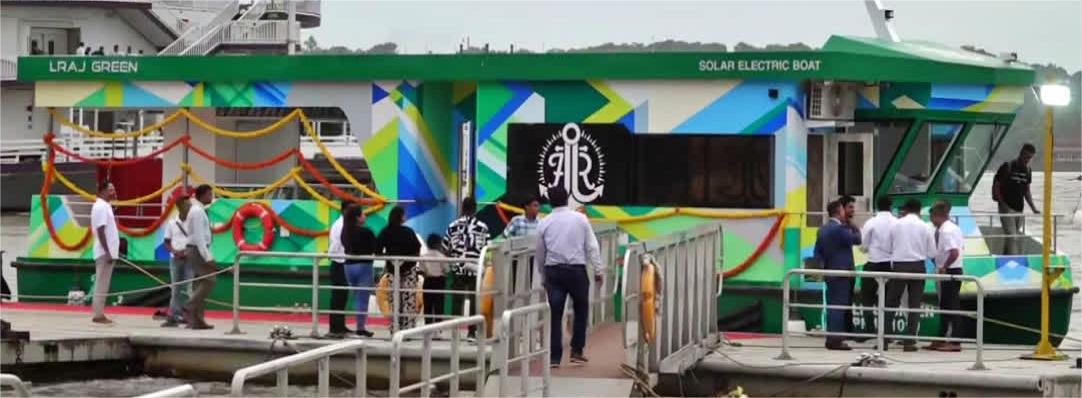In a critical move towards achieving sustainable maritime operations, leading classification society DNV and the Mumbai Port Sustainability Foundation (MPSF) signed a Memorandum of Understanding (MoU) to work jointly on projects focused on decarbonization, emissions management, digitalization, and overall safety improvements within India’s maritime sector. The MoU signing was done in presence of Sarbananda Sonowal, Minister for Ports, Shipping & Waterways, Government of India, Uday Chaitanya Ganivada, DNV Country Manager for India, Sri Lanka, and Bangladesh and other Mumbai Port Authority and Customs officials in Mumbai.
The Mumbai Port Sustainability Foundation (MPSF), under the Mumbai Port Authority, has been working towards eco-friendly practices through its Centre of Excellence on ESG and Circularity. By supporting local ports and maritime companies, MPSF seeks to implement cutting-edge technologies and enhance overall environmental performance.
Why This Partnership is Essential
With India’s ports increasingly central to global trade, the environmental impact of port operations has come under significant scrutiny. The rise in global maritime trade, paired with escalating concerns over carbon emissions, makes it essential for ports to adopt more sustainable practices. The International Maritime Organization (IMO) has set stringent emission reduction goals, including a 50% reduction in greenhouse gas emissions by 2050. Indian ports, as critical hubs for both national and international trade, must align with these goals to remain competitive and environmentally responsible.
Furthermore, as ports grow, they contribute to local air pollution, marine contamination, and biodiversity loss. Adopting low-carbon fuel technologies and enhancing emissions management systems are vital for reducing these environmental risks. Without immediate action, ports risk being left behind in the global push for environmentally conscious trade practices, potentially facing stricter regulations and operational limitations.
Scope of the Collaboration
The MPSF, through its Centre of Excellence on ESG and Circularity, aims to promote the adoption of advanced, eco-friendly technologies across India’s ports. Under the agreement, DNV will provide key insights on regulatory requirements, industry trends, and emerging technologies that can be applied to port operations. By leveraging DNV’s global expertise, MPSF hopes to lead India’s ports into a future of sustainable operations that include low-carbon fuel bunkering, digital navigation systems, and improved safety protocols.
Dr. R.D. Tripathi, CEO of MPSF, highlighted the necessity for innovation in port operations, stating:
“This collaboration will enable a thorough analysis of our current challenges and allow us to devise innovative solutions for greening port operations. It’s not just about reducing emissions, but also about ensuring the long-term sustainability of our ports.”
Cristina Saenz de Santa Maria, Regional Manager South East Asia, Pacific & India, Maritime at DNV, reiterated the partnership’s importance:
“India’s maritime sector is undergoing a major transformation, and we’re proud to contribute to making Indian ports greener and more resilient. This MoU marks a key step forward in integrating advanced technologies for cleaner and safer port operations.”
Strategic Benefits of the Collaboration
- Decarbonization: The partnership will explore low-carbon fuel options, such as LNG bunkering, and reduce reliance on traditional fuels that contribute significantly to greenhouse gas emissions.
- Digitalization: Ports must evolve through automation and digital monitoring systems to ensure real-time management of emissions, energy consumption, and overall environmental impact.
- Safety and Emissions Management: Improved monitoring systems will enable ports to manage risks better, prevent accidents, and ensure compliance with national and international maritime regulations.
- Global Leadership: As Indian ports modernize through partnerships like this, they are poised to lead the way for other developing nations in adopting sustainable practices, enhancing India’s reputation on the global maritime stage.
The Path Forward
The DNV-MPSF MoU not only ensures that Indian ports are future-ready but also positions them to meet the evolving demands of a world that values sustainability as much as operational efficiency. By focusing on long-term resilience and eco-friendly innovations, this collaboration will set a benchmark for ports across the region and beyond.
As the maritime industry continues to evolve, partnerships like this will be crucial in driving sustainable practices, ensuring environmental responsibility, and creating resilient systems capable of withstanding future challenges.




